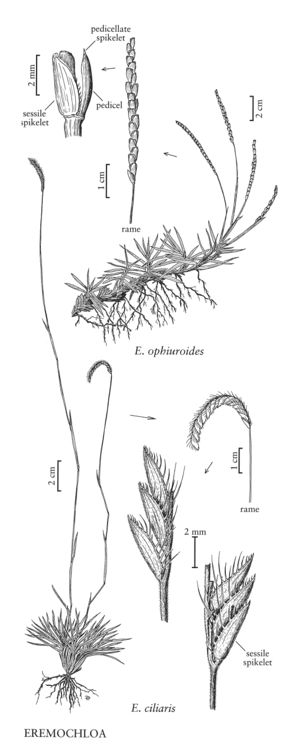Eremochloa ciliaris
Plants cespitose, sometimes shortly stoloniferous. Culms 30-70 cm, compressed, sometimes branching from the upper nodes. Leaves mostly basal; sheaths keeled, strongly distichous and imbricate, often loose, basal sheaths pubescent below; ligules to 0.6 mm, membranous; blades to 25 cm long, to 6 mm wide, flat or folded, basal blades glabrous. Rames 4-7 cm, straight to falcate; internodes 2-3 mm, clavate, shortly pubescent. Sessile spikelets 4-5 mm, ovoid-oblong; calluses pubescent; lower glumes elliptic, obscurely 7-9-veined, keeled, keels with conspicuous spines, basal spines to 3 mm, those near the apices to 0.3 mm; upper glumes 3-5-veined, keeled below; lower florets staminate; anthers about 2 mm, yellow; upper florets bisexual. Pedicels to 3 mm. Pedicellate spikelets not differentiated. 2n = 36.
Discussion
Eremochloa ciliaris is native to southeast Asia. It was collected in San Francisco in the nineteenth century, but has not been reported since from the Flora region.
Selected References
None.
